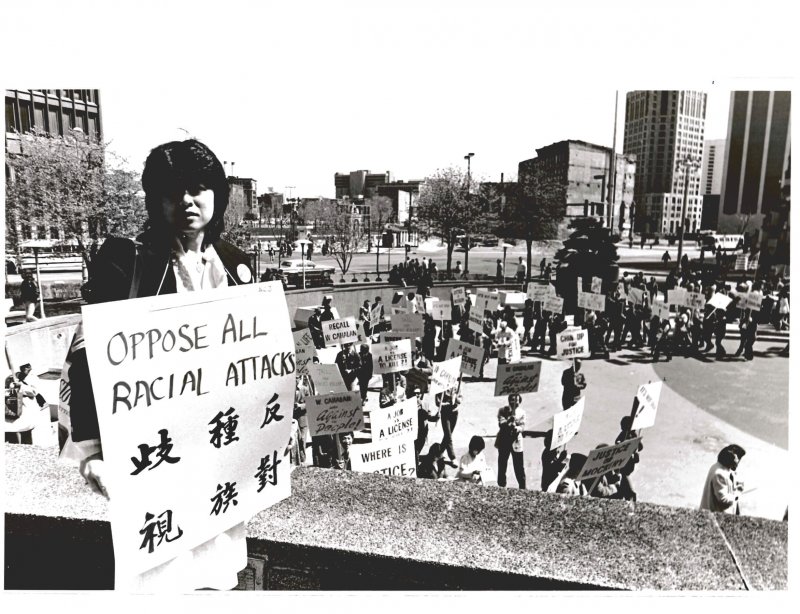
Vincent Chin rally in Detroit, 1983 (Photo by Victor Yang, China Times)
On the night of June 19, 1982, 27-year-old Vincent Chin was celebrating his bachelor’s party with friends in a Detroit strip club. He got into an altercation with two white men, and both groups were thrown out. The two men tracked down Chin with the help of a third man and brutally beat him with a baseball bat.
Their reason? They blamed the downturn of the Detroit auto industry on Japanese cars, which were at the time overtaking American models in popularity. They thought Chin was Japanese. He was Chinese American.
Vincent Chin was left in a coma and died four days later, on June 23 — a few days before his scheduled wedding. The two men from the club (one of them was the killer while the other held Chin) were charged with second-degree murder but the charge was reduced to manslaughter and neither served any jail time. They were ordered to three years probation and to pay $3,000 in fines.
A young Asian American journalist, Helen Zia reported on the murder, then led the efforts to bring federal civil rights charges against the men. In the end, the accused murderers settled a civil suit out of court. Ronald Ebens, the man who beat Chin, was ordered to pay $1.5 million, but Chin’s estate has never received any payment.
It was national news when it happened, but it’s faded from memory for most people.
Continue reading












